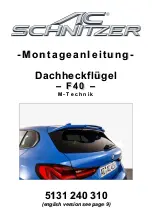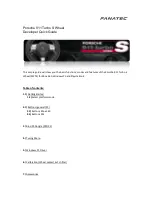
ELECTRONIC CONTROL MODULES
TABLE OF CONTENTS
page
page
CENTRAL TIMER MODULE
DESCRIPTION
. . . . . . . . . . . . . . . . . . . . . . . . . . 1
OPERATION
. . . . . . . . . . . . . . . . . . . . . . . . . . . . 1
DIAGNOSIS AND TESTING - CENTRAL TIMER
MODULE
. . . . . . . . . . . . . . . . . . . . . . . . . . . . . 2
REMOVAL
. . . . . . . . . . . . . . . . . . . . . . . . . . . . . 2
INSTALLATION
. . . . . . . . . . . . . . . . . . . . . . . . . . 3
CONTROLLER ANTILOCK BRAKE
DESCRIPTION
. . . . . . . . . . . . . . . . . . . . . . . . . . 3
REMOVAL
. . . . . . . . . . . . . . . . . . . . . . . . . . . . . 3
INSTALLATION
. . . . . . . . . . . . . . . . . . . . . . . . . . 3
ENGINE CONTROL MODULE
DESCRIPTION
. . . . . . . . . . . . . . . . . . . . . . . . . . 3
REMOVAL
. . . . . . . . . . . . . . . . . . . . . . . . . . . . . 6
INSTALLATION
. . . . . . . . . . . . . . . . . . . . . . . . . . 6
TRANSMISSION CONTROL MODULE
DESCRIPTION
. . . . . . . . . . . . . . . . . . . . . . . . . . 6
OPERATION
. . . . . . . . . . . . . . . . . . . . . . . . . . . . 7
STANDARD PROCEDURE - TCM ADAPTATION
. 10
CENTRAL TIMER MODULE
DESCRIPTION
The central timer module (CTM) is located beneath
the driver seat. The CTM uses information carried on
the programmable communications interface (PCI)
data bus network along with many hard wired inputs
to monitor many sensor and switch inputs. In
response to those inputs, the circuitry and program-
ming of the CTM allow it to supply the vehicle occu-
pants with audible and visual information, and to
control and integrate many functions and features of
the vehicle through both hard wired outputs and the
transmission of message outputs to other modules in
the vehicle over the PCI data bus.
The features that the CTM supports or controls
include the following:
•
Central Locking - The CTM on vehicles
equipped with the optional Vehicle Theft Security
System (VTSS) includes a central locking/unlocking
feature.
•
Enhanced Accident Response - The CTM pro-
vides an optional enhanced accident response fea-
ture. This is a programmable feature.
•
Panic Mode - The CTM provides support for
the optional RKE system panic mode including horn,
headlamp, and park lamp flash features.
•
Power Lock Control - The CTM provides the
optional power lock system features, including sup-
port for the automatic door lock and door lock inhibit
modes.
•
Programmable Features - The CTM provides
support for certain programmable features.
•
Remote Keyless Entry - The CTM provides
the optional Remote Keyless Entry (RKE) system fea-
tures, including support for the RKE Lock (with
optional horn and park lamps flash), Unlock (with
park
lamps
flash,
driver-door-only
unlock,
and
unlock-all-doors),
Panic,
and
illuminated
entry
modes, as well as the ability to be programmed to
recognize up to four RKE transmitters. The RKE
horn, driver-door-only unlock, and unlock-all-doors
features are programmable.
•
Vehicle Theft Security System - The CTM
provides control of the optional Vehicle Theft Secu-
rity System (VTSS) features, including support for
the central locking/unlocking mode and control of the
Security indicator in the instrument cluster.
Hard wired circuitry connects the CTM to the elec-
trical system of the vehicle. Refer to the appropriate
wiring information.
Many of the features in the vehicle controlled or
supported by the CTM are programmable using the
DRBIII
t
scan tool. However, if any of the CTM hard-
ware components are damaged or faulty, the entire
CTM unit must be replaced. The hard wired inputs
or outputs of all CTM versions can be diagnosed
using conventional diagnostic tools and methods;
however, for diagnosis of the CTM or the PCI data
bus, the use of a DRBIII
t
scan tool is required. Refer
to the appropriate diagnostic information.
OPERATION
The central timer module (CTM) monitors many
hard wired switch and sensor inputs as well as those
resources it shares with other modules in the vehicle
through its communication over the programmable
communications interface (PCI) data bus network.
The internal programming and all of these inputs
allow the CTM to determine the tasks it needs to
perform and their priorities, as well as both the stan-
dard and optional features that it should provide.
The CTM then performs those tasks and provides
those features through both PCI data bus communi-
cation with other modules and hard wired outputs
through a number of driver circuits, relays, and
VA
ELECTRONIC CONTROL MODULES
8E - 1
















































